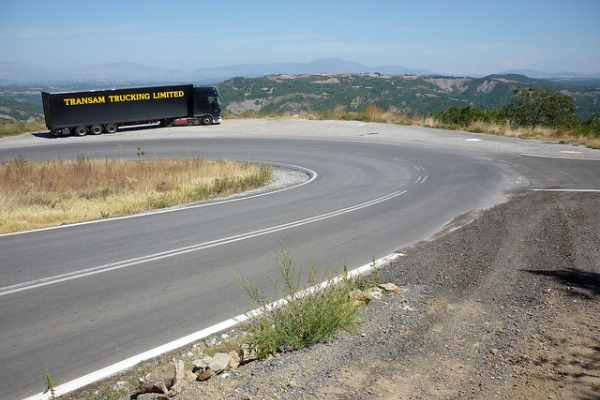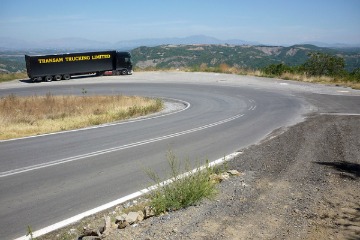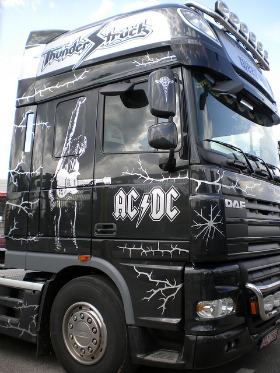
On the way from Thessaloniki to Igoumenitsa, Greece. All photos by author.
Today’s How’d You Get That Gig? is a Q&A with British long distance rock and roll truck driver, Barnaby Davies.
So what is a long distance rock and roll truck driver?
We’re the guys (and sometimes gals) that get a band’s equipment from A to B when they are on tour. And believe me, if you’re working for someone like U2, that’s a lot of gear! As well as U2, I’ve been lucky enough to tour with acts such as Madonna, Paul McCartney, Bon Jovi, Depeche Mode, and Tina Turner.
Contrary to popular belief, rock and roll truckers are not really roadies. We don’t get involved with setting up the stage or any of the equipment – we just drive between the shows. But we are responsible for the gear while it’s in transit, so we need to supervise the loading and unloading. You really don’t want to arrive at the next show with Bono’s lights all busted!

